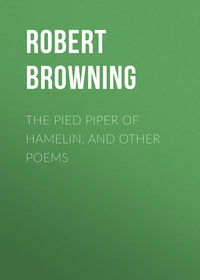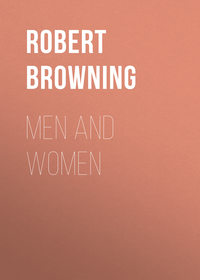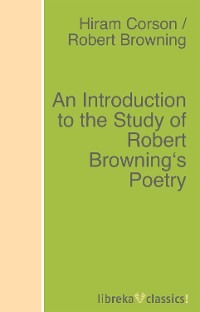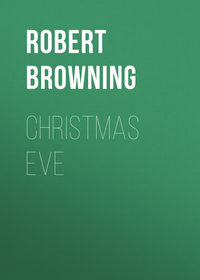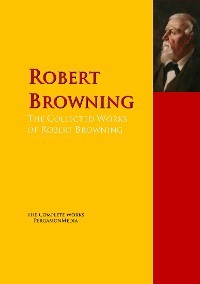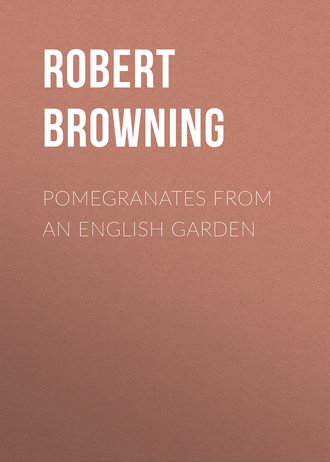 полная версия
полная версияPomegranates from an English Garden
The lunar rainbow, so wonderfully described in the next stanza, is the occasion and point of departure of the poetic vision or ecstasy which occupies the remainder of the poem —
VIFor lo, what think you? suddenlyThe rain and the wind ceased, and the skyReceived at once the full fruitionOf the moon’s consummate apparition.The black cloud-barricade was riven,Ruined beneath her feet, and drivenDeep in the West; while, bare and breathless,North and South and East lay readyFor a glorious thing that, dauntless, deathless,Sprang across them and stood steady.’Twas a moon-rainbow, vast and perfect,From heaven to heaven extending, perfectAs the mother-moon’s self, full in face.It rose, distinctly at the baseWith its seven proper colours chorded,Which still, in the rising, were compressed,Until at last they coalesced,And supreme the spectral creature lordedIn a triumph of whitest white, —Above which intervened the night.But above night too, like only the next,The second of a wondrous sequence,Reaching in rare and rarer frequence,Till the heaven of heavens were circumflexed,Another rainbow rose, a mightier,Fainter, flushier and flightier, —Rapture dying along its verge.Oh, whose foot shall I see emerge,Whose, from the straining topmost dark,On to the keystone of that arc?He did see One emerging from the glory —
VIIIAll at once I looked up with terror.He was there,He himself with his human air,On the narrow pathway, just before.I saw the back of him, no more —He had left the chapel, then, as I.I forgot all about the sky.No face: only the sightOf a sweepy garment, vast and white,With a hem that I could recognise.I felt terror, no surprise;My mind filled with the cataract,At one bound of the mighty fact.“I remember, he did say“Doubtless, that, to this world’s end,“Where two or three should meet and pray,“He would be in the midst, their friend;“Certainly he was there with them!”And my pulses leaped for joyOf the golden thought without alloy,That I saw his very vesture’s hem.Then rushed the blood black, cold and clear,With a fresh enhancing shiver of fear;And I hastened, cried out while I pressedTo the salvation of the vest,“But not so, Lord! It cannot be“That thou, indeed, art leaving me —“Me, that have despised thy friends!”The confession of his sin in despising His friends in the little chapel is speedily followed by a gracious token of forgiveness: —
IX* * * * *The whole face turned upon me full.And I spread myself beneath it,As when the bleacher spreads, to seethe itIn the cleansing sun, his wool, —Steeps in the flood of noontide whitenessSome defiled, discoloured web —So lay I, saturate with brightness.His sin thus purged (how exquisitely wrought out the lovely simile of the sun-cleansed wool!), he is “caught up in the whirl and drift of the vesture’s amplitude,” and thus clinging to the garment’s hem, is carried across land and sea – to a scene so complete a contrast to the one he has just left that he is confused, and some time elapses before he discovers that he is in front of St. Peter’s at Rome: —
XAnd so we crossed the world and stopped.For where am I, in city or plain,Since I am ’ware of the world again?And what is this that rises proppedWith pillars of prodigious girth?Is it really on the earth,This miraculous Dome of God?Has the angel’s measuring-rodWhich numbered cubits, gem from gem,’Twixt the gates of the New Jerusalem,Meted it out, – and what he meted,Have the sons of men completed?– Binding, ever as he bade,Columns in the colonnadeWith arms wide open to embraceThe entry of the human raceTo the breast of … what is it, yon building,Ablaze in front, all paint and gilding,With marble for brick, and stones of priceFor garniture of the edifice?Now I see; it is no dream;It stands there and it does not seem:For ever, in pictures, thus it looks,And thus I have read of it in booksOften in England, leagues away,And wondered how these fountains play,Growing up eternallyEach to a musical water-tree,Whose blossoms drop, a glittering boon,Before my eyes, in the light of the moon,To the granite layers underneath.There follows a description of the worship in the great cathedral – not now, as before, unsympathetic and merely critical, but giving evidence of the liveliest appreciation of the feelings of the intelligent and devout ritualist, as in the following passage: —
Earth breaks up, time drops away,In flows heaven, with its new dayOf endless life, when he who trod,Very man and very God,This earth in weakness, shame and pain,Dying the death whose signs remainUp yonder on the accursed tree, —Shall come again, no more to beOf captivity the thrall,But the one God, All in all,King of kings, Lord of lords,As his servant John received the words,“I died, and live for evermore!”Still he cannot enter into it. He is left outside the door. Distracted with conflicting emotions, his reason repelled by the superstition, his spirit attracted by the lofty devotion which he discovers at the heart of the too gorgeous ritual – he cannot make up his mind whether he should join them for the one reason, or shun them for the other —
XI* * * * *Though Rome’s gross yokeDrops off, no more to be endured,Her teaching is not so obscuredBy errors and perversities,That no truth shines athwart the lies:And he, whose eye detects a sparkEven where, to man’s, the whole seems dark,May well see flame where each beholderAcknowledges the embers smoulder.But I, a mere man, fear to quitThe clue God gave me as most fitTo guide my footsteps through life’s maze,Because himself discerns all waysOpen to reach him: I, a manAble to mark where faith beganTo swerve aside, till from its summitJudgment drops her damning plummet,Pronouncing such a fatal spaceDeparted from the founder’s base:He will not bid me enter too,But rather sit, as now I do,Awaiting his return outside.– ’Twas thus my reason straight repliedAnd joyously I turned, and pressedThe garment’s skirt upon my breast,Until, afresh its light suffusing me,My heart cried “What has been abusing meThat I should wait here lonely and coldly,Instead of rising, entering boldly,Baring truth’s face, and letting driftHer veils of lies as they choose to shift?Do these men praise him? I will raiseMy voice up to their point of praise!I see the error; but aboveThe scope of error, see the love. —Oh, love of those first Christian days!– Fanned so soon into a blaze,From the spark preserved by the trampled sect,That the antique sovereign IntellectWhich then sat ruling in the world,Like a change in dreams, was hurledFrom the throne he reigned upon:You looked up and he was gone.The remainder of the stanza is taken up with a most eloquent, but somewhat difficult passage, illustrating the triumph of the new Love over the old Culture. In the following stanza he makes up his mind that he “will feast his love, then depart elsewhere, that his intellect may find its share”; so the next transition, by the same mode of rapture, is to a German University. What he sees there provokes again his latent humour: —
XIVAlone! I am left alone once more —(Save for the garment’s extreme foldAbandoned still to bless my hold)Alone, beside the entrance-doorOf a sort of temple, – perhaps a college,– Like nothing I ever saw beforeAt home in England, to my knowledge.The tall old quaint irregular town!It may be … though which, I can’t affirm … anyOf the famous middle-age towns of Germany;And this flight of stairs where I sit down,Is it Halle, Weimar, Cassel, Frankfort,Or Göttingen, I have to thank for ’t?It may be Göttingen, – most likely.Through the open door I catch obliquelyGlimpses of a lecture-hall;And not a bad assembly neither,Ranged decent and symmetricalOn benches, waiting what’s to see there;Which, holding still by the vesture’s hem,I also resolve to see with them,Cautious this time how I suffer to slipThe chance of joining in fellowshipWith any that call themselves his friends;As these folks do, I have a notion.But hist – a buzzing and emotion!All settle themselves, the while ascendsBy the creaking rail to the lecture-desk,Step by step, deliberateBecause of his cranium’s over-freight,Three parts sublime to one grotesque,If I have proved an accurate guesser,The hawk-nosed, high-cheek-boned Professor.I felt at once as if there ranA shoot of love from my heart to the man —That sallow virgin-minded studiousMartyr to mild enthusiasm,As he uttered a kind of cough-preludiousThat woke my sympathetic spasm,(Beside some spitting that made me sorry)And stood, surveying his auditoryWith a wan pure look, well nigh celestial, —Those blue eyes had survived so much!While, under the foot they could not smutch,Lay all the fleshly and the bestial.Over he bowed, and arranged his notes,Till the auditory’s clearing of throatsWas done with, died into a silence;And, when each glance was upward sent,Each bearded mouth composed intent,And a pin might be heard drop half a mile henceHe pushed back higher his spectacles,Let the eyes stream out like lamps from cells,And giving his head of hair – a hakeOf undressed tow, for colour and quantity —One rapid and impatient shake,(As our own young England adjusts a jaunty tieWhen about to impart, on mature digestion,Some thrilling view of the surplice-question)– The Professor’s grave voice, sweet though hoarse,Broke into his Christmas-Eve discourse.The stanza which follows gives an account of the discourse, which is a learned discussion of “this Myth of Christ,” “which, when reason had strained and abated it of foreign matter, left, for residuum, a man! – a right true man,” but nothing more. He has no difficulty in determining his duty here (“this time He would not bid me enter.”) The religious atmosphere in which Papist and Dissenter live may be far from pure, in the one case for one reason, and in the other for the opposite; but either of the two is immeasurably better than the vacuum left when the Critic has done his work of destruction. Then follows a long argument to show the unreasonableness of denying the divinity of Christ, only a part of which can be given here.
XVI* * * * *This time he would not bid me enterThe exhausted air-bell of the Critic.Truth’s atmosphere may grow mephiticWhen Papist struggles with Dissenter,Impregnating its pristine clarity,– One, by his daily fare’s vulgarity,Its gust of broken meat and garlic;– One, by his soul’s too-much presumingTo turn the frankincense’s fumingAnd vapours of the candle starlikeInto the cloud her wings she buoys on.Each, that thus sets the pure air seething,May poison it for healthy breathing —But the Critic leaves no air to poison;Pumps out with ruthless ingenuityAtom by atom, and leaves you – vacuity.Thus much of Christ, does he reject?And what retain? His intellect?What is it I must reverence duly?Poor intellect for worship, truly,Which tells me simply what was told(If mere morality, bereftOf the God in Christ, be all that’s left)Elsewhere by voices manifold;With this advantage, that the staterMade nowise the important stumbleOf adding, he, the sage and humble,Was also one with the Creator.You urge Christ’s followers’ simplicity:But how does shifting blame, evade it?Have wisdom’s words no more felicity?The stumbling-block, his speech – who laid it?How comes it that for one found ableTo sift the truth of it from fable,Millions believe it to the letter?Christ’s goodness, then – does that fare better?Strange goodness, which upon the scoreOf being goodness, the mere dueOf man to fellow-man, much moreTo God, – should take another viewOf its possessor’s privilege,And bid him rule his race! You pledgeYour fealty to such rule? What, all —From heavenly John and Attic Paul,And that brave weather-battered PeterWhose stout faith only stood completerFor buffets, sinning to be pardoned,As, more his hands hauled nets, they hardened, —All, down to you, the man of men,Professing here at Göttingen,Compose Christ’s flock! They, you and I,Are sheep of a good man!Reasonings that grow out of the main discussion are continued throughout stanzas 17-20, till once more he is caught up and carried back to his original starting point. The remainder of the poem can now be given without interruption, and will be readily understood. (The exquisite development of the simile of the cup and the water will be specially noted, as also the charitable wish so strikingly expressed on behalf of the poor Professor, that before the end comes he may know Christ as “the God of salvation.”)
XXIAnd I caughtAt the flying robe, and unrepelledWas lapped again in its folds full-fraughtWith warmth and wonder and delight,God’s mercy being infinite.For scarce had the words escaped my tongue,When, at a passionate bound, I sprungOut of the wandering world of rain,Into the little chapel again.XXIIHow else was I found there, bolt upright.On my bench, as if I had never left it?– Never flung out on the common at nightNor met the storm and wedge-like cleft it,Seen the raree-show of Peter’s successor,Or the laboratory of the Professor!For the Vision, that was true, I wist,True as that heaven and earth exist.There sat my friend, the yellow and tall,With his neck and its wen in the selfsame place;Yet my nearest neighbour’s cheek showed gall.She had slid away a contemptuous space:And the old fat woman, late so placable,Eyed me with symptoms, hardly mistakable,Of her milk of kindness turning rancid.In short, a spectator might have fanciedThat I had nodded, betrayed by slumber,Yet kept my seat, a warning ghastly,Through the heads of the sermon, nine in number,And woke up now at the tenth and lastly.But again, could such disgrace have happened?Each friend at my elbow had surely nudged it;And, as for the sermon, where did my nap end?Unless I heard it, could I have judged it?Could I report as I do at the close,First, the preacher speaks through his nose:Second, his gesture is too emphatic:Thirdly, to waive what’s pedagogic,The subject-matter itself lacks logic:Fourthly, the English is ungrammatic.Great news! the preacher is found no Pascal,Whom, if I pleased, I might to the task callOf making square to a finite eyeThe circle of infinity,And find so all-but-just-succeeding!Great news! the sermon proves no readingWhere bee-like in the flowers I may bury me,Like Taylor’s the immortal Jeremy!And now that I know the very worst of him,What was it I thought to obtain at first of him?Ha! Is God mocked, as he asks?Shall I take on me to change his tasks,And dare, despatched to a river-headFor a simple draught of the element,Neglect the thing for which he sent,And return with another thing instead? —Saying, “Because the water found“Welling up from underground,“Is mingled with the taints of earth,“While thou, I know, dost laugh at dearth,“And couldst, at wink or word, convulse“The world with the leap of a river-pulse, —“Therefore, I turned from the oozings muddy,“And bring thee a chalice I found, instead:“See the brave veins in the breccia ruddy!“One would suppose that the marble bled.“What matters the water? A hope I have nursed“The waterless cup will quench my thirst.”– Better have knelt at the poorest streamThat trickles in pain from the straitest rift!For the less or the more is all God’s gift,Who blocks up or breaks wide the granite-seam.And here, is there water or not, to drink?I then, in ignorance and weakness,Taking God’s help, have attained to thinkMy heart does best to receive in meeknessThat mode of worship, as most to his mind,Where, earthly aids being cast behind,His All in All appears sereneWith the thinnest human veil between,Letting the mystic lamps, the seven,The many motions of his spirit,Pass, as they list, to earth from heaven.For the preacher’s merit or demerit,It were to be wished the flaws were fewerIn the earthern vessel, holding treasure,Which lies as safe in a golden ewer;But the main thing is, does it hold good measure?Heaven soon sets right all other matters! —Ask, else, these ruins of humanity,This flesh worn out to rags and tatters,This soul at struggle with insanity,Who thence take comfort, can I doubt?Which an empire gained, were a loss without.May it be mine! And let us hopeThat no worse blessing befall the Pope,Turn’d sick at last of to-day’s buffoonery,Of posturings and petticoatings,Beside his Bourbon bully’s gloatingsIn the bloody orgies of drunk poltroonery!Nor may the Professor forego its peaceAt Göttingen presently, when, in the duskOf his life, if his cough, as I fear, should increaseProphesied of by that horrible husk —When thicker and thicker the darkness fillsThe world through his misty spectacles,And he gropes for something more substantialThan a fable, myth or personification, —May Christ do for him what no mere man shall,And stand confessed as the God of salvation!Meantime, in the still recurring fearLest myself, at unawares, be found,While attacking the choice of my neighbours round,With none of my own made – I choose here!The giving out of the hymn reclaims me;I have done: and if any blames me,Thinking that merely to touch in brevityThe topics I dwell on, were unlawful, —Or worse, that I trench, with undue levity,On the bounds of the holy and the awful, —I praise the heart, and pity the head of him,And refer myself to Thee, instead of him,Who head and heart alike discernest,Looking below light speech we utter,When frothy spume and frequent sputterProve that the soul’s depths boil in earnest!May truth shine out, stand ever before us!I put up pencil and join chorusTo Hepzibah tune, without further apology,The last five verses of the third sectionOf the seventeenth hymn of Whitfield’s Collection,To conclude with the doxology.EASTER-DAY
As Christmas-Eve has suggested the subject of the Christian Faith, Easter-Day gives occasion to a discussion concerning the Christian Life – the life of those who are “risen with Christ.” The poem is in substance a conversation or discussion between two persons, one of whom (a thorough Christian) finds it very hard, while the other (who takes a much lower and more common-place view of spiritual things) thinks it quite easy, to be a Christian. It is not, however, in the form of a conversation. As usual in Browning’s work, one speaks, stating his own views and quoting the other’s, which are therefore distinguished from his own (except when he quotes, as he sometimes does, from himself) by quotation marks. The argument is too abstruse to be followed out in all its ramifications; but enough of it can be given to render quite intelligible the extracts from it which we find it possible to give. The opening sentence will give the theme: —
IHow very hard it is to beA Christian! Hard for you and me,– Not the mere task of making realThat duty up to its ideal,Effecting thus, complete and whole,A purpose of the human soul —For that is always hard to do;But hard, I mean, for me and youTo realize it, more or less,With even the moderate successWhich commonly repays our strifeTo carry out the aims of life.After some preliminary discussion about faith in its relation to life, the easy-going friend takes this position: —
VI* * * * *“Renounce the world!“Were that a mighty hardship? Plan“A pleasant life, and straight some man“Beside you, with, if he thought fit,“Abundant means to compass it,“Shall turn deliberate aside“To try and live as, if you tried“You clearly might, yet most despise.“One friend of mine wears out his eyes,“Slighting the stupid joys of sense,“In patient hope that, ten years hence,“‘Somewhat completer,’ he may say,“‘My list of coleoptera!’“While just the other who most laughs“At him, above all epitaphs“Aspires to have his tomb describe“Himself as sole among the tribe“Of snuffbox-fanciers, who possessed“A Grignon with the Regent’s crest.“So that, subduing, as you want,“Whatever stands predominant“Among my earthly appetites“For tastes and smells and sounds and sights,“I shall be doing that alone,“To gain a palm-branch and a throne,“Which fifty people undertake“To do, and gladly, for the sake“Of giving a Semitic guess,“Or playing pawns at blindfold chess.”The stanza which follows gives the speaker’s answer, ending with this striking passage: —
“Renounce the world!” – Ah, were it doneBy merely cutting one by oneYour limbs off, with your wise head last,How easy were it! – how soon past,If once in the believing mood!To which the other replies by reproaching him for ingratitude to God, who really asks us to give up nothing that is good, but only to observe such moderation in our pleasures that life is all the more enjoyable, while sorrow almost disappears, transfigured in the light of love. This answer has such a ring of the true metal in it, that the speaker begins his rejoinder with the question, “Do you say this, or I?” and then proceeds (in a passage of wonderful power) to expose the superficiality of the view he is endeavouring to support.
VIIIDo you say this, or I? – Oh, you!Then, what, my friend? – (thus I pursueOur parley) – you indeed opineThat the Eternal and DivineDid, eighteen centuries ago,In very truth… Enough! you knowThe all-stupendous tale, – that Birth,That Life, that Death! And all, the earthShuddered at, – all, the heavens grew blackRather than see; all, nature’s rackAnd throe at dissolution’s brinkAttested, – all took place, you think,Only to give our joys a zest,And prove our sorrows for the best?We differ, then! Were I, still paleAnd heartstruck at the dreadful tale,Waiting to hear God’s voice declareWhat horror followed for my share,As implicated in the deed,Apart from other sins, – concedeThat if he blacked out in a blotMy brief life’s pleasantness, ’twere notSo very disproportionate!Or there might be another fate —I certainly could understand(If fancies were the thing in hand)How God might save, at that day’s price,The impure in their impurities,Give formal licence and completeTo choose the fair and pick the sweet.But there be certain words, broad, plain,Uttered again and yet again,Hard to mistake or overgloss —Announcing this world’s gain for loss,And bidding us reject the same:The whole world lieth (they proclaim)In wickedness, – come out of it!Turn a deaf ear, if you think fit,But I who thrill through every nerveAt thought of what deaf ears deserve, —How do you counsel in the case?The counsel was, to choose by all means the safe side, by giving up everything as literally as did the martyrs in the early days of persecution; at which a shudder of doubt comes over him, and he answers (note the very remarkable illustration of the moles and the grasshoppers): —
X* * * * *If after all we should mistake,And so renounce life for the sakeOf death and nothing else? You hearOur friends we jeered at, send the jeerBack to ourselves with good effect —“There were my beetles to collect!“My box – a trifle, I confess,“But here I hold it, ne’ertheless!”Poor idiots, (let us pluck up heartAnd answer) we, the better partHave chosen, though ’twere only hope, —Nor envy moles like you that gropeAmid your veritable muck,More than the grasshoppers would truck,For yours, their passionate life away,That spends itself in leaps all dayTo reach the sun, you want the eyesTo see, as they the wings to riseAnd match the noble hearts of them!Thus the contemner we contemn, —And, when doubt strikes us, thus we wardIts stroke off, caught upon our guard,– Not struck enough to overturnOur faith, but shake it – make us learnWhat I began with, and, I wis,End, having proved, – how hard it isTo be a Christian!His friend now reproaches him with the thanklessness of the task he is undertaking, in trying to so little purpose to disturb the peace of a man who has no such high-flown views of duty; whereupon he relates to him a wonderful experience he had on Easter-morn three years before: —


